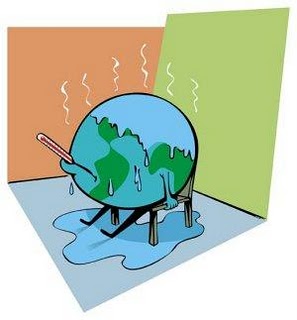BaCCC/Module 5/Assessment
From WikiEducator
Jump to: navigation, search
Module 5 – Climate Justice
True false question
Indicate whether the following statement is true or false:
- Intersectionality is important in the context of climate change adaptation because marginalized groups are often the most vulnerable to the impacts of climate change but are also the least equipped to adapt.
- True
- Correct.
- False
- Incorrect.
- True
Multiple choice question
Select the correct option
- Which of the following is an example of how intersectionality can affect climate change adaptation in developing nations?
- Women may face unique challenges in accessing resources and information for climate change adaptation due to gender inequalities and cultural norms.
- Incorrect.
- Indigenous communities may face displacement and the loss of traditional land and resources due to climate change, which can have significant impacts on their culture, identity and way of life.
- Incorrect.
- both (a) and (b)
- Correct.
- none of the above
- Incorrect.
- Women may face unique challenges in accessing resources and information for climate change adaptation due to gender inequalities and cultural norms.
- What can be done to address the intersectional impacts of climate change in developing nations?
- provide education and training for marginalised groups
- Incorrect.
- incorporate traditional knowledge and practices into adaptation strategies
- Incorrect.
- promote policies and programmes that prioritise the needs of those most affected by climate change
- Incorrect.
- all of the above
- Correct.
- provide education and training for marginalised groups
- Which of the following is NOT an example of how climate change can intersect with social inequalities in developing nations?
- displacement and loss of traditional land and resources among Indigenous communities
- Incorrect.
- lack of access to education and training for women
- Incorrect.
- increased access to healthcare and sanitation in urban areas
- Correct.
- none of the above
- Incorrect.
- displacement and loss of traditional land and resources among Indigenous communities
- Why should we observe Mother Nature to learn about climate change adaptation?
- She has had 3+ billion years of practice at being resilient.
- Correct.
- She is beautiful, even after an extreme weather event such as a cyclone.
- Incorrect.
- She is the backdrop for everyone’s life.
- Incorrect.
- She is inspiring.
- Incorrect.
- She has had 3+ billion years of practice at being resilient.
- The concept of intersectionality came about because
- traffic planners wanted to make roads safer.
- Incorrect.
- discrimination laws would not consider two types of discrimination at once.
- Correct.
- climate activists saw it as the point where climate action and climate justice overlap.
- Incorrect.
- different identities shape different people’s lives differently.
- Incorrect.
- traffic planners wanted to make roads safer.
- Why are children particularly vulnerable to climate change impacts?
- Their smaller bodies make them much more vulnerable to high winds or torrential floodwaters.
- Incorrect.
- They are reliant on adults to help them.
- Incorrect.
- Due to their developing organs (e.g., their lungs), they are susceptible to particular diseases (such as asthma) that might be exacerbated by wildfires or the dust from drought.
- Incorrect.
- All of the above.
- Correct.
- Their smaller bodies make them much more vulnerable to high winds or torrential floodwaters.
- Women and children are more vulnerable to climate disasters because
- they are usually smaller than men
- Incorrect.
- they are discriminated against in several ways
- Correct.
- they are not as healthy as men
- Incorrect.
- they grow food in different ways
- Incorrect.
- they are usually smaller than men
- Marginalised groups include
- people with no disabilities
- Incorrect.
- white men and teenage boys
- Incorrect.
- the healthy and wealthy
- Incorrect.
- none of the above
- Correct.
- people with no disabilities
- What does “child honouring” do?
- It bases decisions on children’s needs
- Correct.
- It worships children.
- Incorrect.
- It holds a beauty pageant for children.
- Incorrect.
- It recognises that children have special needs.
- Incorrect.
- It bases decisions on children’s needs
- What is “privilege” in the context of intersectionality?
- a monopoly on natural resources
- Incorrect.
- the right to have more than others because of one’s height
- Incorrect.
- often unacknowledged social advantages because of identity
- Correct.
- being honoured at the intersection
- Incorrect.
- a monopoly on natural resources
True false question
Indicate whether the following statements are true or false:
- Intersectionality is important in the context of climate change adaptation because marginalised groups are often the most vulnerable to the impacts of climate change but are also the least equipped to adapt.
- True
- Correct.
- False
- Incorrect.
- True
- In developed countries, low-income communities and communities of colour in urban areas are often disproportionately impacted by climate change due to their location in flood-prone areas, polluted neighbourhoods or extremely hot urban heat islands.
- True
- Correct.
- False
- Incorrect.
- True
- When it comes to climate change, people with disabilities are not marginalised.
- True
- Incorrect.
- False
- Correct.
- True
- The impacts of climate change are not distributed equally across the globe.
- True
- Correct.
- False
- Incorrect.
- True
- The legacy of colonialism has left many countries and communities with limited resources and infrastructure to cope with the impacts of climate change.
- True
- Correct.
- False
- Incorrect.
- True
